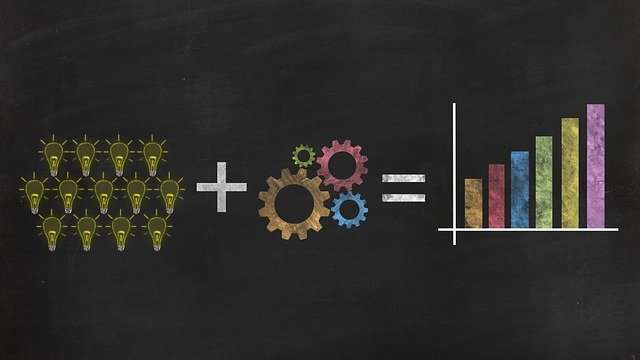
by Suellen | Meeting the Challenges, Vision and Goals
Some people think that our mindsets were set at birth and they can’t be changed. But that is a myth! Not only is this a myth, but it can be dangerous, as it belies the potential for human change and personal development.
Another myth is that a growth mindset is good and a fixed mindset is bad.
In this blog post we want to expose those myths. Your mindset is definitely changeable! And having either mindset can be good.
Not only is your mindset changeable, but it changes throughout your life, sometimes rapidly, and sometimes slowly. You might not have noticed you attitudes changing, but over time we change. We might not pick up on our own inner changes.
Everyone’s mindset is a combination of fixed and growth mindsets, and it’s the ratio of these two that changes throughout life. You can become more or less open to risk and more or less believing in the power of hard work and dedication to reach goals. You can also become more or less convinced that intelligence or morality are inborn versus developed attributes.
These are just examples, but every aspect of your mindset is equally open to change.
What drives these changes? The experiences you have in life are the primary reason, and how your mindset shifts is due to your personality. The same experience will have different effects on different people.
Most people shift more toward a growth mindset as they go through life, but there are exceptions. Trauma and other negative events can push people toward having more of a fixed mindset.
All of this is assuming that all the changes your mindset undergoes are unguided and happen naturally.
You can also deliberately and consciously change your mindset. You can focus on the parts of your mindset that you don’t like and change them.
Helping you do that is the purpose of this program.
Deliberately changing your core attitudes isn’t always easy, but it can be done.
During this challenge, pick one aspect of your mindset you would like to work on. Perhaps it’s embracing new things or working through frustration.
Then you can work on that one thing. There are some aids we’ll share which can help your development.
Commit your woks to the Lord and your plans will be established. (Proverbs 16:3)
Affirmations (some call it confessions), journaling, and meditation (especially on God’s Word) help you succeed in this. There are many verses in Proverbs which address habits and personality traits. These are terrific for meditation and affirmation.
When you’re satisfied with your progress in one area, you move on to the next.
Don’t buy into the myth that mindset is static. Not only can it change, but it does change throughout your life, whether or not you purposefully try to change it. Why not guide these changes and help them along so that you can grow into the best possible version of yourself.
Today, think about one aspect of your mentality you want to change. That’s what you should work on first.

by Suellen | Meeting the Challenges, Vision and Goals
After reading the last two posts, you might be saying: What am I? Would I be labeled a “fixed” or “growth” mindset?
In the last two posts we met Janet and Hal. They had entirely different mindsets and their attitudes affected their career progress. Yet things are not always so cut and dried, so we need to dig deeper into this idea of attitudes.
Growth mindset and fixed mindset might seem like opposites, and in many ways they are, but there’s more to it than that. These mindsets are different ways of looking at the world and of processing and using the information that we are presented with.
From a personal development standpoint, a growth mindset is preferred, but that doesn’t mean it’s better than a fixed mindset in other ways. Both have their advantages and disadvantages and having more of a fixed mindset or more of a growth mindset doesn’t determine what type of person you are.
Furthermore, the vast majority of people don’t have either a pure fixed mindset or a pure growth mindset. It’s doubtful if a person with such a mindset even exists. All that can be said of anyone is that they have more of one type of mindset than the other.
Mindset is a tricky thing in that it can vary from one facet of life to another as well. This means that someone can have a strong fixed mindset in one arena and a strong growth mindset in another.
As an example, you’ve met people who are fitness experts but who don’t have any desire to learn computer technology. And vice versa; people who are online geniuses yet feel inhibited when they go to the gym.
Another important fact about growth versus fixed mindset is that no one’s mindset is static. It changes throughout your lifespan. It usually (but not always) becomes more mixed or a predominantly growth mindset as you age.
The changes are directed by innate personality and life experiences unless a person is actively involved in personal development.
Because mindset is changeable, it can be directed by both internal and external forces in one direction or the other. That is to say, you can direct your mindset into more growth mindset-oriented patterns, but other people can influence you also. Educators and psychologists have designed numerous programs and developed multiple methods of doing this with students and employees.
If you’re interested in learning which type of mindset you have, psychologists have designed quizzes you can take for this purpose. Some of them are available online for free but keep in mind that these aren’t comprehensive and provide only a small snapshot of the large portrait that is your mindset. They are handy for identifying specific areas you want to work on.
As you pray and seek God’s guidance, you can discover areas of your life that are on target, and ones you want to improve.
Take a deep breath,and move forward. Changes can come, if you’d like.
Overcoming Limiting Beliefs will help you and your customers. You can use this Done-For-You Content as blogposts, e-books, short courses, and any other way you can imagine!

by Suellen | Meeting the Challenges, Vision and Goals
Hal was gifted in sports. He played baseball, soccer, basketball – and golf. Needless to say, his high school and college years were loaded with games, practices and more of the same. Hal loved all the activity, and it trained him in many ways.
It taught him to be disciplined and to press through when things weren’t going so well.
When Hal graduated from college, his obvious career choice was that of a coach. So he tried that. However, after awhile, he felt stagnant in his job and started thinking about a change.
That’s when the management job at a sports equipment company was offered.
This would be totally different. Instead of being physically active, he would be at a desk much of the time. This would require lots of computer work – a skill Hal didn’t have. There would be many reports – not Hal’s forte.
Yet the pay would be much better, and there was much room for advancement.
Hal took the job, knowing that whatever he had to learn, he could. And whatever he had to do, he would be able to acquire the skills.
Hal had a growth mindset.
A growth mindset is one that believes in change and improvement. You can start yours HERE
Someone who has a growth mindset believes that their skills and talents can be improved through hard work, practice, and dedication. Natural talent is a gift of genetics, but it alone is not enough to make someone a master of their craft, and even the most talented person can get better through practice.
People with a growth mindset have a love of learning and never stop trying to learn new things, even many years after they get out of school. They’re always trying to understand the latest methods in their field, improving their skills at a sport, or learning something new.
The 80-year-old woman in the Beginning French class has a growth mindset, as does the newly retired executive who takes up windsurfing for the first time.
A growth mindset embraces challenges, sometimes to the point of seeking them out. People with this mindset see challenges as learning and growth opportunities rather than obstacles standing in their way. They don’t get easily frustrated by failures and roadblocks; they believe these things are to be expected and are a sign they need to adjust and try again.
Intelligence and other personal attributes aren’t fixed, or so believe those who have a growth mindset. They believe that these things can change with hard work and effort.
Genetics are merely a starting point, a blueprint provided by God, and \you can improve upon your abilities as you grow.
Growth mindset people see constructive feedback as a helpful method of improving themselves rather than criticism or a personal attack. They take the feedback and use it to improve their performance in whatever area it’s regarding.
Stress doesn’t affect those with a growth mindset as strongly as it does those with a fixed mindset. This mindset confers a resilience that allows them to be less affected and to bounce back faster than other people. This is not to say that serious problems or negative life events (such as deaths in the family) don’t affect them, but they tend to recover faster.
The success of other people is inspiring to those with a growth mindset. They try to figure out how the other person succeeded and how to imitate them. This increases their own odds of success.
Persistence, resilience, dedication, and a commitment to growth are the hallmarks of the growth mindset. No one has a pure growth mindset, but every person can work on cultivating their mindset to make it more growth-oriented.
If you have “limiting beliefs” this is for you. Overcoming Limiting Beliefs

by Suellen | Meeting the Challenges, Vision and Goals
Janet was offered a promotion at work. – a promotion which would have brought her a greater future. However, acquiring some internet skills would be required, and she knew that she couldn’t do the job.
Janet had never been “techy.” She figured that her mentality was geared more toward arts and not tech.
So she let the promotion pass her by.
Janet was suffering from a thing called “fixed Mindset,” and this attitude caused her to let many opportunities pass her by.
There are two basic types of mindset: fixed mindset and growth mindset. Of the two, growth mindset is the preferred one, but that’s not to say there is anything inherently wrong with having a fixed mindset; it’s just a different way of viewing the world.
And that mindset can limit you just as it did Janet.
Furthermore, few people have a pure fixed or growth mindset. Most people have a combination of the two, and they might have different aspects of each in different parts of their lives.
A person’s mindset is also changeable and changes naturally through time or due to conscious effort.
See how you can Overcome Limiting Beliefs and share these ideas with your community.
All of that said, what is a fixed mindset? A fixed mindset believes personal qualities and attributes are fixed at birth and aren’t able to be changed or improved upon. An example is intelligence; someone with a fixed mindset sees that as a fixed quantity bestowed upon a person by the genetics.
Other things someone with a fixed mindset sees as fixed include things like skills and natural talent. For example, a fixed mindset person might say “I’m just no good at sports” and downplay the possibility of improving their skills through practice.
Skills are given from the fixed mindset viewpoint, not earned.
People who have a fixed mindset often seek safety rather than opportunities for growth.
They see challenges as obstacles rather than learning opportunities.
They also tend to take constructive feedback as a personal attack rather than using it to improve their skills and performance at work and elsewhere. After all, if skills and attributes are fixed, why try to improve?
A fixed mindset leads people to give up on things they’re not immediately good at and to move on to other things that come more naturally. Some also give up when they feel frustrated.
One final disadvantage of a fixed mindset is that it can lead to a tendency to feel envious of or threatened by other people’s success.
There are two big advantages to a fixed mindset, however.
The first is that it forces people to embrace reality.
The second is that it avoids problems with unrealistic optimism.
People with a fixed mindset are usually the hard-core pragmatists and realists who keep other people on the ground.
Again, most people don’t have either a purely fixed or growth mindset.
And if you don’t like your current mindset, guess what? You can change it!

by Suellen | Meeting the Challenges, Vision and Goals
What’s the number one factor that determines whether someone succeeds at achieving a goal? Do you know?
Is it genetics? Luck?
What about skills or natural talent?
Hard work has to be in there somewhere, right?
How about networking and getting the right degree?
All of these factors are important, some more so than others, but none hold the number one spot.
So, what’s number one?
Mindset! That’s it! Research has shown that mindset is a better predictor of future success than every other factor you can consider, including hard work and natural talent.
You and your clients can improve your mindsets with this Done-for-you package
This is the case with every endeavor. Whether it’s graduating from high school, getting a promotion at work, buying a home, starting a business, or making it into a professional sports league, mindset is the most important determinant of success.
Do you remember the saying: If you think you can, you can. If you think you can’t, you’re right?
Obviously, your mindset has to line up with your skills. Not everyone can be a pro-football player or a rocket scientist. There are natural skills involved.
Yet there are many who have the natural skills but who haven’t developed the mindset to believe in themselves.
Why is mindset so important? What makes it so important that it overrides many other factors which can influence success?
Mindset is what drives you, what motivates you, and what makes you get up to try again when you fail.
No one succeeds on the first try. No one, no matter how talented, gets where they want to be without some failures or setbacks. Those who don’t have the right mindset -who have a fixed mindset or a negative mindset -will give up well before they reach their goal.
They’ll conclude that whatever it was isn’t for them and move on to something else.
People who have a growth mindset will get up and try again. They’ll find another way to get where they want to go. They’ll work harder and smarter, get coaching, ask for help, and do whatever else they can to reach their goals. They see failure as an obstacle and a challenge, not a final verdict on whether or not they can get where they want to be.
Mindset gives you grit, determination, and stamina. It can keep you going when everything seems lost and hopeless. This is why mindset is the number one predictor of success. If you want to up your odds of achieving your goals, you must cultivate a growth mindset
















